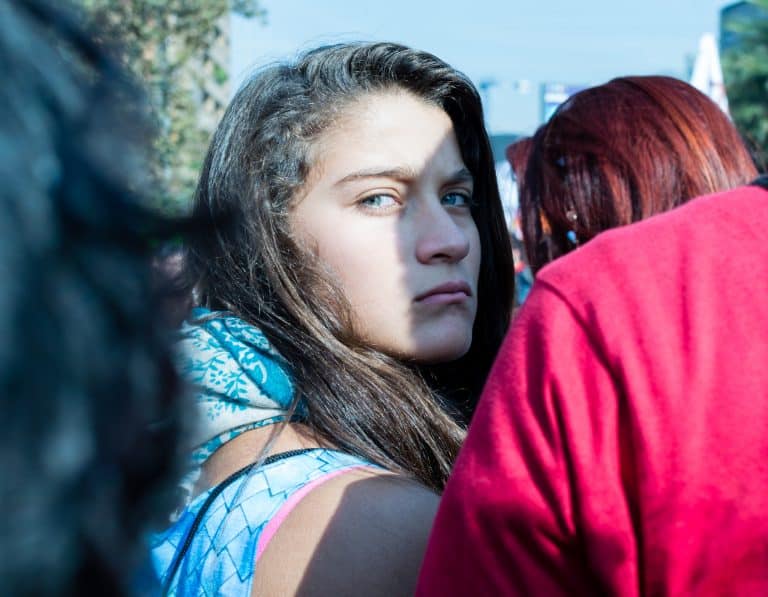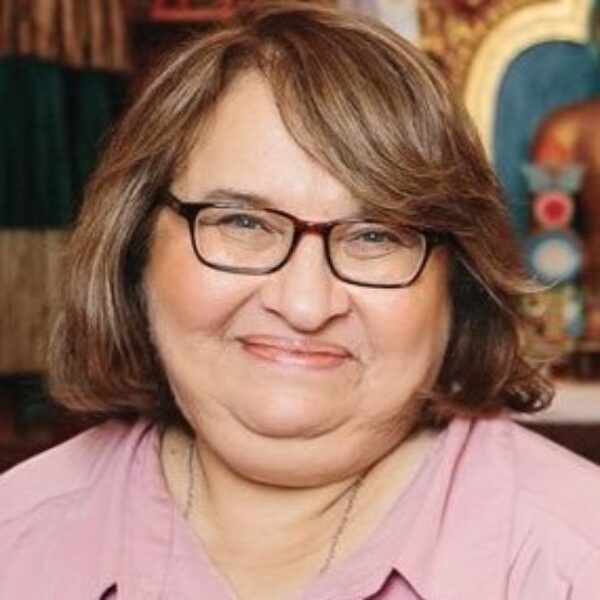
Image by Francisco Osorio/Flickr, Attribution.
Love Doesn’t Make Us Stupid — It Makes Us Brave
Many years ago, as my publisher and I were searching for a cover for an early book of mine, they sent me a depiction of a Van Gogh print. Much of the space was taken up by a big, yellow sky. Down in one corner there were a few crumbled repeated huts. I thought it a scene of utter devastation and said to a friend, “This looks like it should be the cover of The Grapes of Wrath or something like that.” She replied, “This looks like a world that could use some love.”
Needless to say, we chose a different cover, but my friend’s comment has stayed with me all this time.
“This looks like a world that could use some love.”
Some days it feels like that statement is more true than ever. Some days it feels like bringing love to the forefront, having it be part of a broader consideration of how we act, the ways we speak to one another, and our biggest aspirations for a meaningful life, could be more remote than ever.
These days people commonly tell me they wake up in a funk, tossed into sleeplessness by a refrain of fear. We fear disruption and violence. We fear chaos. We fear being consigned to the category of people in this world who don’t count. We fear the kind of hatred spilling out through Western societies. Increasingly people tell me they fear the kind of hatred spilling from their own hearts.
Recently, at a retreat, I was teaching a woman who told me she was haunted by the rage she felt at family members who had voted differently from how she had in the last presidential election. She said,
“The most healing practice I had previously undertaken was keeping a gratitude journal, writing down three things each night that I had to be grateful for from the day. Now that’s all gone. I’m bitter, I’m angry, and I’m afraid… It seems like I feel only those three things. I don’t want to obsess the way that I am, all day long, but I am.”
We talked about the possibility of her resuming her gratitude practice, and how that practice doesn’t need to be seen as one of covering over difficult feelings, or smiling prettily as we slip further and further into passivity and, ultimately, despair. It’s actually quite a radical practice.
What makes gratitude one of the most subversive qualities is that it trains the mind to seek out the essentials of life for recognition, not the frills, phobias, and distractions. If we truly feel grateful, we are not focusing on what more we need, and the dominant culture doesn’t know what to do with us. Our restless and competitive world shames us when we say we are grateful. Well, maybe that’s enough for you, but the people who really succeed in this life always want more. It’s never enough.
To them, the paucity of the demands gratitude makes on the world is evidence of mediocrity or lack of ambition. The perspective gratitude brings separates us from marketplace- and culture-induced cravings for more and better. Living with gratitude means that those forces can’t make us feel bad, sell us things we don’t need, or make as many demands on our attention. Why? Because we are in touch with the good in life as well as the suffering. This becomes the resource out of which we can seek change and take action.
And so too with love. We can move away from anxious identification with love as submissiveness or giving in. We don’t have to limit our notion of love to romance. We can challenge our conditioning that tells us that loving someone also mandates our liking them and wanting to spend time with them. We can remember that, as the Buddha taught, love is the antidote to fear, not the countervailing force to wisdom. Love doesn’t make us stupid; it makes us brave.
Love doesn’t mean we approve of someone, or that we will cease to disagree or to fight. It means that we recognize that, like it or not, we live in an interconnected universe, that our lives have something to do with one another. It means that the more severed we feel from the whole, the more we suffer and the more we are willing to cause suffering. If we study life, if we look at our own deepest experience, we see love as a power rather than a compromised sentimentality. We see that love instead of hatred can fuel our actions as we work to both provoke and embody the change we seek for our communities and for the world. This is what I am calling real love.
If we look at the world today we see that this does indeed look like a world that could use some love. If we believe in the possibility of love and the power of love and the availability of love, then it becomes up to each one of us to make it real.
Writer Jason Garner recently offered me an inspiring way of thinking about lovingkindness for all beings. “At times it can seem glib, naïve, or perhaps even stupid to talk about loving all beings,” he said.
“When we look around our world, with wars, terrorist attacks, people killing each other over race, religion, gender, and sexual orientation… how can we possibly hold a space for loving everyone? But this is, in fact, exactly why we must.”
In other words, it often seems like the conditions of our world push us toward cynicism, as if our regard for others is something beyond our control. But just as we can practice resisting our habits of self-judgment with lovingkindness, we can meet the hate we see in our world with love. And, in fact, we have to.
That’s the crux of Jason’s argument for radical love:
“We’re called to practice a love that is more courageous than all the terror we see in our world, because if we aren’t bold in our love then the hate wins out… So we love one another even when it’s seemingly impossible; we look for the humanity behind the acts of hatred; we find our own pain in the pain of the world; and we meet it all with an intensity of love that is fitting of our intense times.”

